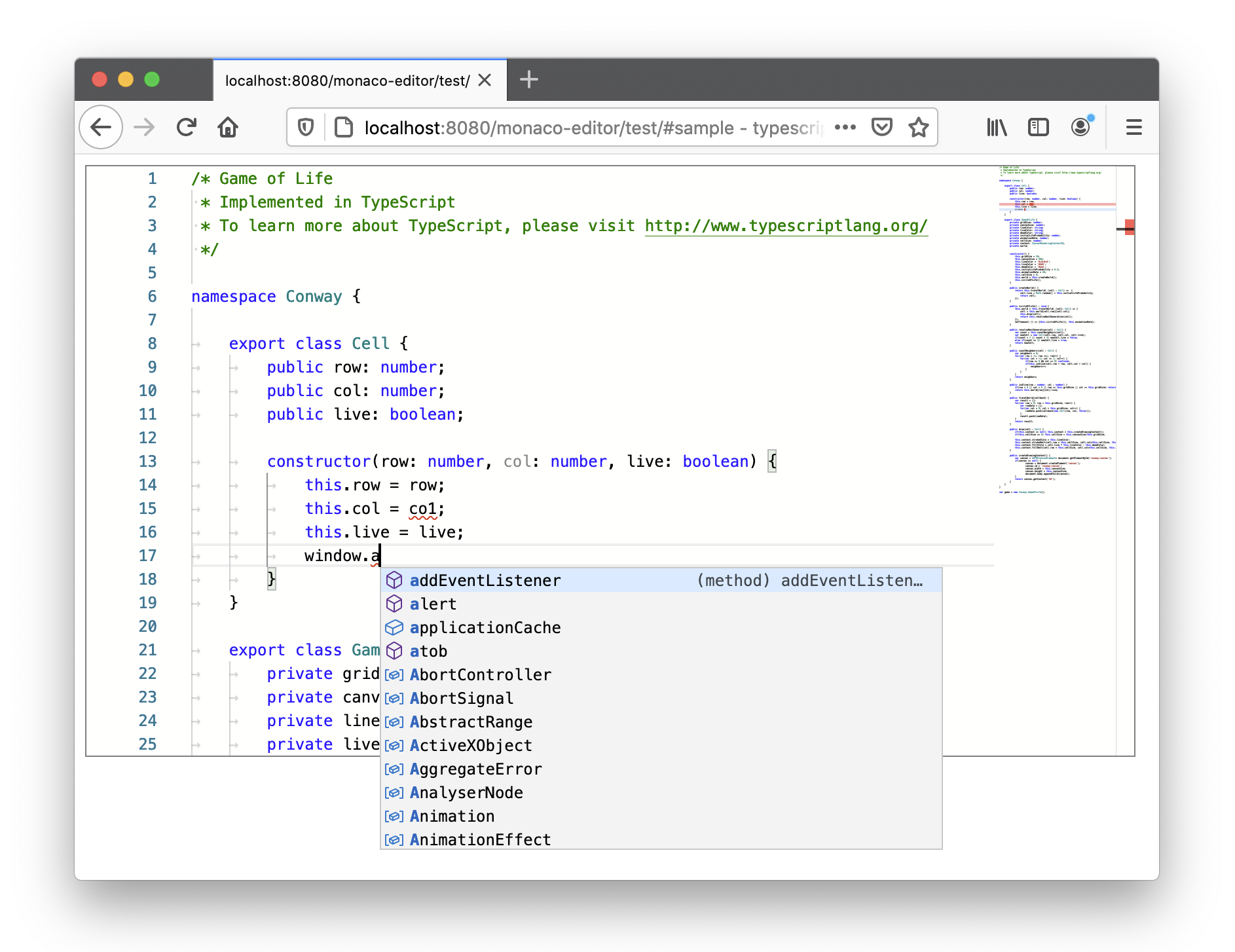The Monaco Editor is the fully featured code editor from VS Code. Check out the VS Code docs to see some of the supported features.
Try out the editor and see various examples in our interactive playground.
The playground is the best way to learn about how to use the editor, which features is supports, to try out different versions and to create minimal reproducible examples for bug reports.
> npm install monaco-editor
You will get:
- inside
/esm: ESM version of the editor (compatible with e.g. webpack) - inside
/dev: AMD bundled, not minified - inside
/min: AMD bundled, and minified - inside
/min-maps: source maps formin monaco.d.ts: this specifies the API of the editor (this is what is actually versioned, everything else is considered private and might break with any release).
It is recommended to develop against the dev version, and in production to use the min version.
- Learn how to integrate the editor with these complete samples.
- Learn how to use the editor API and try out your own customizations in the playground.
- Explore the API docs or read them straight from
monaco.d.ts. - Read this guide to ensure the editor is accessible to all your users!
- Create a Monarch tokenizer for a new programming language in the Monarch playground.
- Ask questions on StackOverflow! Search open and closed issues, there are a lot of tips in there!
Create issues in this repository for anything related to the Monaco Editor. Please search for existing issues to avoid duplicates.
❓ What is the relationship between VS Code and the Monaco Editor?
The Monaco Editor is generated straight from VS Code's sources with some shims around services the code needs to make it run in a web browser outside of its home.
❓ What is the relationship between VS Code's version and the Monaco Editor's version?
None. The Monaco Editor is a library and it reflects directly the source code.
❓ I've written an extension for VS Code, will it work on the Monaco Editor in a browser?
No.
Note: If the extension is fully based on the LSP and if the language server is authored in JavaScript, then it would be possible.
❓ Why all these web workers and why should I care?
Language services create web workers to compute heavy stuff outside of the UI thread. They cost hardly anything in terms of resource overhead and you shouldn't worry too much about them, as long as you get them to work (see above the cross-domain case).
❓ What is this loader.js? Can I use require.js?
It is an AMD loader that we use in VS Code. Yes.
❓ I see the warning "Could not create web worker". What should I do?
HTML5 does not allow pages loaded on file:// to create web workers. Please load the editor with a web server on http:// or https:// schemes.
❓ Is the editor supported in mobile browsers or mobile web app frameworks?
No.
❓ Why doesn't the editor support TextMate grammars?
- Please see https://github.com/bolinfest/monaco-tm which puts together
monaco-editor,vscode-onigurumaandvscode-textmateto get TM grammar support in the editor.
We are welcoming contributions from the community! Please see CONTRIBUTING for details how you can contribute effectively, how you can run the editor from sources and how you can debug and fix issues.
This project has adopted the Microsoft Open Source Code of Conduct. For more information see the Code of Conduct FAQ or contact opencode@microsoft.com with any additional questions or comments.
Licensed under the MIT License.




